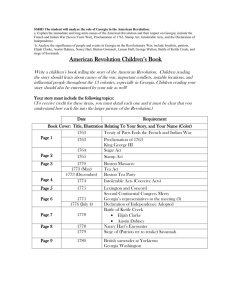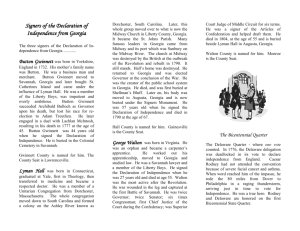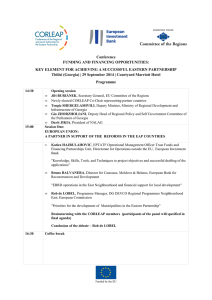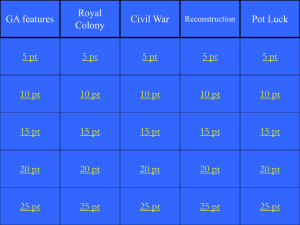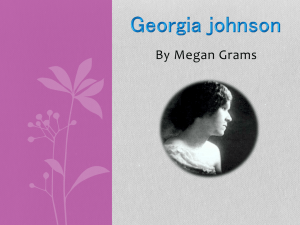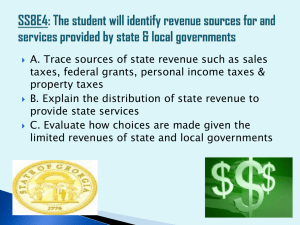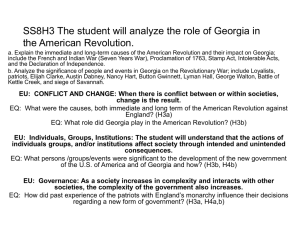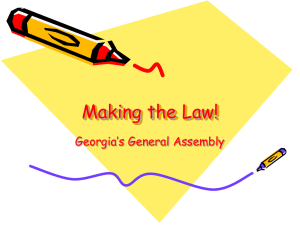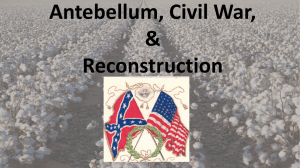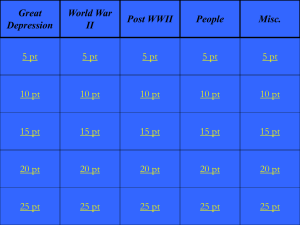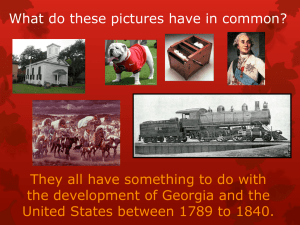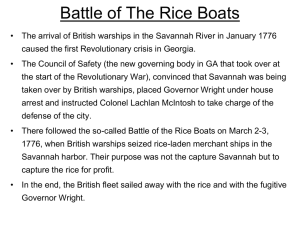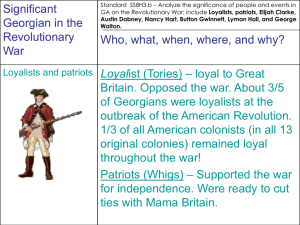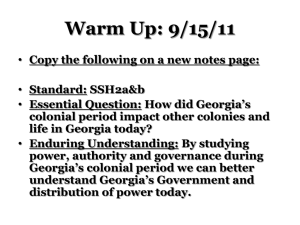American Revolutionary War ppt 2
advertisement
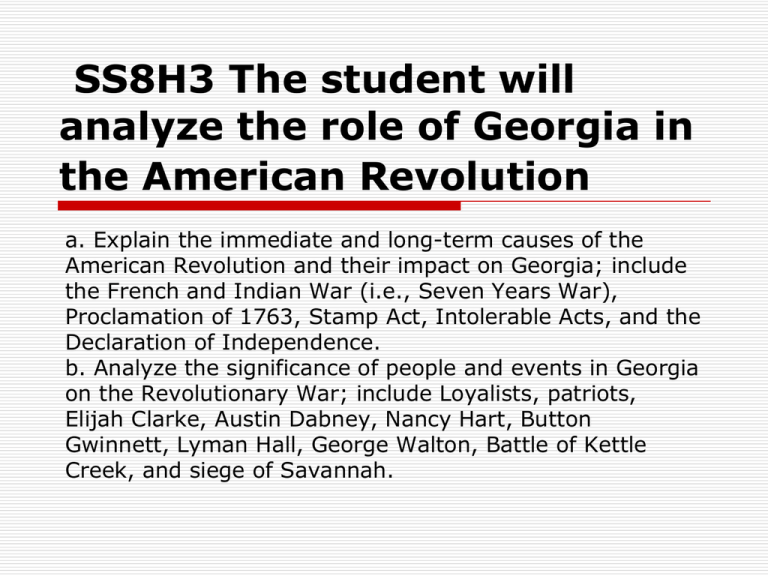
SS8H3 The student will analyze the role of Georgia in the American Revolution a. Explain the immediate and long-term causes of the American Revolution and their impact on Georgia; include the French and Indian War (i.e., Seven Years War), Proclamation of 1763, Stamp Act, Intolerable Acts, and the Declaration of Independence. b. Analyze the significance of people and events in Georgia on the Revolutionary War; include Loyalists, patriots, Elijah Clarke, Austin Dabney, Nancy Hart, Button Gwinnett, Lyman Hall, George Walton, Battle of Kettle Creek, and siege of Savannah. The French and Indian War 1754-1763 A.K.A. The Seven Years War Dispute between France and Great Britain over the Ohio River Valley The French and Indian War contd. Troops led by a young George Washington British struggled early, but ended up winning due to the strength of the British Navy. Georgia’s border was set to the Mississippi River at the end of the war. Results of the war British gained control of Canada The western frontier was opened up for settlement by other countries Great Britain obtained Florida from Spain France gave Louisiana Territory to Spain The F&I war directly led to the American Revolution Proclamation of 1763 Issued by King George in 1763 / Forbid colonists to settle west of the Appalachian Mountains Moved Georgia’s southern boundary to the St. Mary’s River The new boundaries were important for Georgia’s growth Stamp Act 1765 Attempted to raise money to pay for the F & I War Savannah’s Liberty boys protested (Tondee’s Tavern) / Were part of Boston’s Sons of Liberty Georgia was the only colony to sell any of the Stamps The Intolerable Acts Punishment for the Boston Tea Party Consisted of 4 laws; Boston Harbor closed, Massachusetts town meetings banned, British officials tried in British courts, Quartering Act Not much protest from Georgia, the youngest colony was still very dependent on England The Declaration of Independence Thomas Paine “Common Sense” January 1776 7/4/1776 Declaration of Independence Approved Preamble – Introduction – colonists views about democracy Body – 27 grievances against King George Conclusion – declared the colonies a separate nation Loyalists and Patriots Loyalists – Loyal to the King Patriots – Were for independence for the colonies Elijah Clarke and The Battle of Kettle Creek First colonial battle victory in Ga. Georgia Militia, led by Elijah Clarke, took badly needed horses and weapons from the British soldiers. Austin Dabney African American hero of the Battle of Kettle Creek Received land as payment for his Military service (Madison County) Nancy Hart Neighbor was killed by Tories (Loyalists) Tories later demanded food and drink Stole their rifles and shot one or two of the soldiers Only Georgia county named for a woman Nancy Hart Button Gwinnett, Lyman Hall and George Walton Georgia’s signers of the Declaration of Independence Walton, 26, was the youngest signer Officially signed 8/2/1776 Gwinnett, Walton, Hall L to R Siege of Savannah December 1778, British forces took control of Savannah September 1779, nearly 20,000 soldiers laid siege Early October the troops attacked and failed miserably, Count Casimir Pulaski was killed Savannah remained under British control for another 3 ½ years The End of SS8H3
